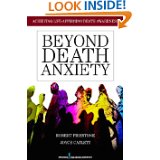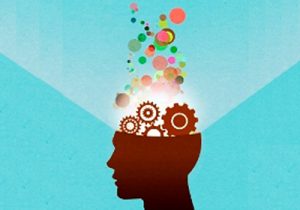Dealing with Unresolved Trauma
 Recently, a friend of mine who suffers from chronic lower back pain came back from yet another visit to the doctor with a bit of unexpected advice. Instead of the usual discussion of shots, medications, physical therapy, or even surgery, his doctor recommended a book, Healing Back Pain: The Mind Body Connection. The book by John E. Sarno, M.D. sets out to explain “how stress and other psychological factors can cause back pain-and how you can be pain free without drugs, exercise, or surgery.” Reading the book, my friend was struck by Sarno’s connection between early childhood trauma and adult back pain. In just a few weeks of reflecting on and processing this connection within himself, he already saw an improvement in his symptoms.
Recently, a friend of mine who suffers from chronic lower back pain came back from yet another visit to the doctor with a bit of unexpected advice. Instead of the usual discussion of shots, medications, physical therapy, or even surgery, his doctor recommended a book, Healing Back Pain: The Mind Body Connection. The book by John E. Sarno, M.D. sets out to explain “how stress and other psychological factors can cause back pain-and how you can be pain free without drugs, exercise, or surgery.” Reading the book, my friend was struck by Sarno’s connection between early childhood trauma and adult back pain. In just a few weeks of reflecting on and processing this connection within himself, he already saw an improvement in his symptoms.
These days, we are learning more and more about the adverse effects of trauma on many aspects of our mental and physical health and wellbeing. Science seems to be linking early trauma to everything from back pain to depression. In a recent interview with Oprah Winfrey on 60 Minutes psychiatrist and neuroscientist Bruce Perry talked about the effect adverse childhood events have on us as adults. “If you have developmental trauma, the truth is you’re going to be at risk for almost any kind of physical health, mental health, social health problem that you can think of,” said Perry.
Unresolved trauma can haunt us throughout our lives in ways that often don’t seem direct. As adults, we may attempt to forget or gloss over the past. We may think, “My childhood wasn’t that bad” or “Many people had it worse than I did.” We don’t realize that these old wounds can have all kinds of physical and psychological effects. Certain events may involuntarily trigger reactions in us that we haven’t thought about in years: guilt, shame, fear, or anger sourcing from early in our lives.
Attachment research suggests that it isn’t just what happens to us that affects us and our relationships, but we’re also affected by the extent to which we haven’t been able to feel the full pain and make sense of our experiences. When we don’t deal with our trauma, we carry it with us. We haven’t made sense of our story, and therefore, our past is still impacting our present in countless invisible ways. It influences how we parent, how we relate to our partner, how we feel, think, and operate in the world.
Therefore, perhaps the most important thing we can do to resolve unresolved trauma is to create a coherent narrative. I recently had the privilege of teaching an eCourse with Dr. Daniel Siegel on “Making Sense of Your Life.” In the course, we emphasized that some things that don’t look traumatic to us as adults felt traumatic to us as kids. Creating a coherent narrative is a process that involves writing down any “big T trauma” we endured, be it a serious loss, abuse, or life-threatening event, as well as the “little t traumas” we experienced. These events may not seem as dramatic, but they impacted us by causing us distress, fear, or pain and, therefore, changed the way we saw ourselves, other people, and the world around us. In many cases, we’ll discover that these traumas are not fully resolved.
An example of this occurred in a course I taught on coherent narrative. A woman wrote down a story, which she shared with the class. She started by shamefully stating that as a kid, she killed a horse, a trauma she identified as an indication of her “badness.” However, further details told a very different story. It turns out that when she was only 11-years-old, her parents put her on a horse that hadn’t been tamed. Despite being scared, she took the horse for a trail ride, as she had in the past with other well-trained horses. The horse got spooked by something, failed to clear a jump, and died. Her parents immediately blamed her for the animal’s death and threatened to send her away to boarding school unless she wrote letters of apology to everyone in the family.
As she told the story in the class, people pointed out that it didn’t make sense to say she was responsible. In fact, it seemed more like neglect on the part of her parents to make her ride a wild horse to begin with. The woman kept insisting that she was still to blame. It wasn’t until she imagined the same event happening to a child she knew in her current life, who happened to be the same age she had been at the time of the accident, that it clicked. Not only had she been traumatized and frightened by the event, but she had been blamed for it, leaving her with a feeling of shame she thought she deserved.
The woman had carried this feeling of shame with her for her entire life, all the while believing anything bad that happened to her was also deserved. By telling her story, she was able to understand how different the reality was from the one she’d accepted and had continued to believe since she was a kid. As an adult, with the support of the group, she was able to face that her parents were neglectful and had endangered her as well as the horse, a reality that had been too scary for her to face as a child. By making her narrative coherent, she was able to feel for herself, experience some relief, and resolve some of her trauma around the incident. She was also able to finally start to let go of a feeling of being basically “bad,” which had followed her since the event.
Although our instinct may be to bury the past, minimize, or avoid our pain, feeling the feeling of what happened to us can actually lead to healing. It can help us separate our early experiences from the present day and identify the negative overlays these experiences have on our current lives, including our physical health and relationships. Creating a coherent narrative can be a powerful tool to resolving early childhood trauma. Making sense of our history can free us of many of its burdens in all their manifestations. It can help us break destructive intergenerational cycles to become stronger parents and partners. It can lead us to feel more secure within ourselves and provide more security to others. Facing our trauma isn’t easy, but it is a fundamental aspect of healing mentally and physically, a tool for building better relationships, and a key to unlocking our truest selves.
Later this year, Dr. Firestone will host the Webinar “Healing from Trauma.” Learn more here
Tags: attachment, child development, childhood trauma, developmental trauma, health, personal growth, Post-traumatic stress, self development, self-understanding, trauma3 Comments
Comments are closed.










thank you for this reminder~ it takes years to internalize the coherent narrative so it’s always good to get a reality check. Talked to my family this Easter after years of only emailing and of course my feeling since then is how clearly they look down on me and think of me as the “bad” child. Yikes ~ I have been fighting this my entire adult life. Once again I have to let it go and know my own worth will never be seen or valued by them. Instead I have to build relationships with people who do see and value my worth.
What are some of the best resources for an assortment of exercises to help overcome disorganized attachment due to a very abusive childhood? My ACES score is seven, but it might be higher if they had a category for some of my less common experiences. My parents are both NPD, and life with them has always been a wild ride.
I am currently recovering from the horrendous mistake of allowing my patents to move in with us temporarily while they looked for a house. Three and a half years later with me fast approaching death, we threw them out. That feeling of being helpless and incapacitated due to Late Stage Lyme with them present reenacted my childhood experiences and set off a cascade of ugliness.
I am working with a therapist and have for many years, but I am also looking for what I can do to help myself. She cannot heal for me!
Interestingly, that John Sarno book you reference was exactly the one that started me on my healing journey nearly twenty years ago! It is a very helpful place to begin.
Thank you!
Or.. value yourself. That’s been a big one for me! I LOVE ME! I have had to learn to love me. I let all the depths of what others think into my cells.. NO MORE! I LOVE, ACCEPT and VALUE ME! You can and will too!